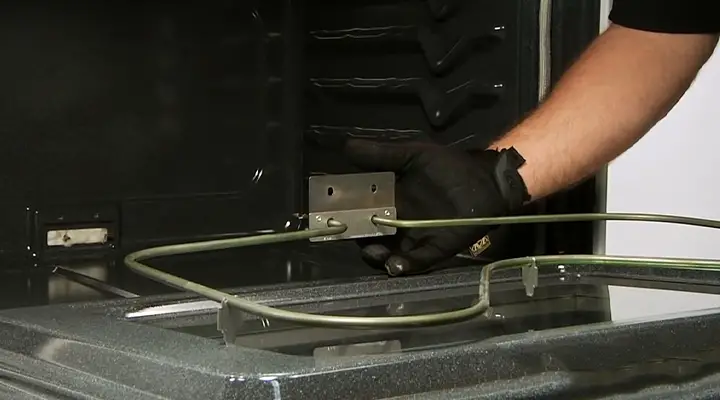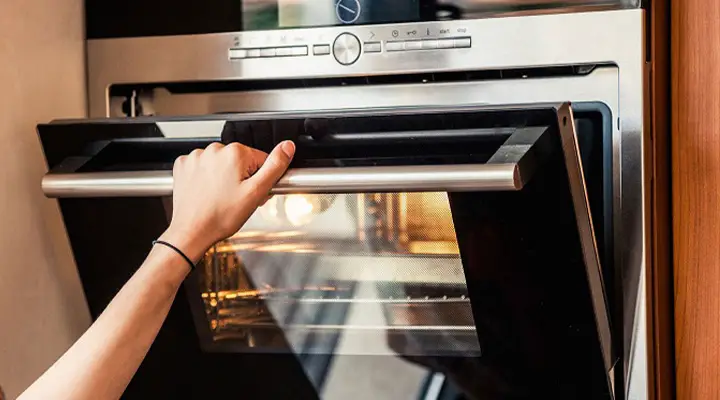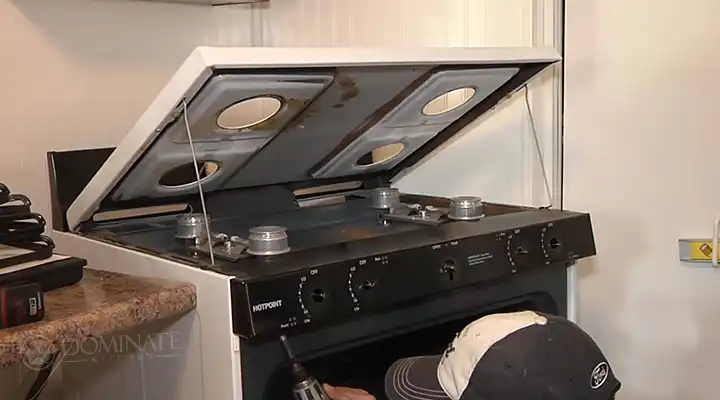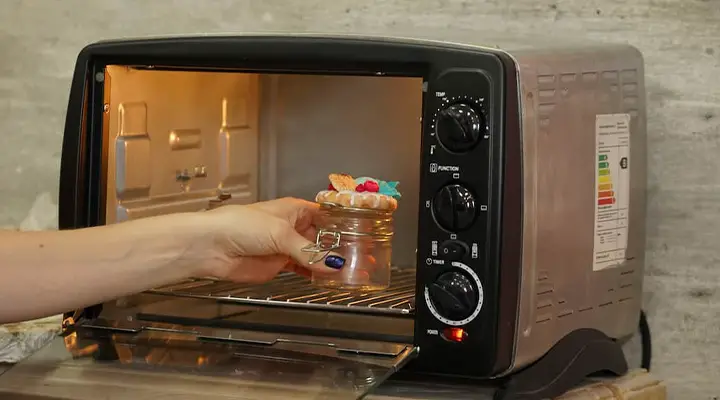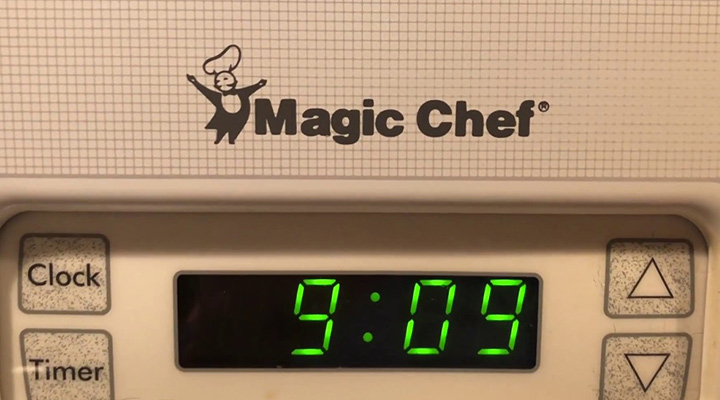Why Microwave Making Geiger Counter Noise?
The magnetron that creates microwaves is where the noise in your microwave comes from if it sounds like a Geiger counter. There is no need to be frightened because the sound is natural. Something may be wrong with your fan run-on if your microwave makes relatively loud or unusual noises while it is in standby mode.
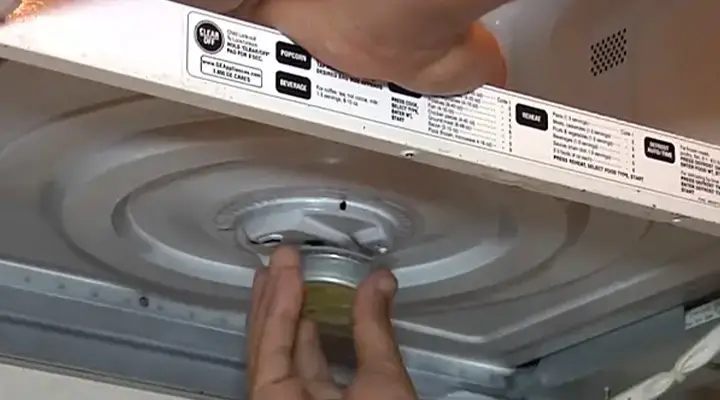
Microwave Making Geiger Counter Noise
There is a problem with the power supply or the high voltage going to the magnetron, which can be the reason for the noise. It is risky in either case. The danger is not worthwhile.
It is suggested to plug it out right away. Take it back to the retailer if you can, and exchange it there. But if you can’t obtain a qualified repairman to say it’s safe, don’t use it again. It’s best to just buy a new microwave because repairs would likely cost more money.
Why Is My Microwave Making a Crackling Noise
Whether your microwave makes a cracking sound when it’s not in use, you should check to see if it needs to be repaired. Take into account each of these typical issues as there are numerous causes for strange noises produced by microwaves.
Consider whether the hazards outweigh the savings as you decide on the problem and think of repairing it yourself. The greatest microwaves demand less maintenance, so you shouldn’t take on any tasks you find challenging. Look at the instructions for replacing the microwave turntable motor if you suspect that the noise is coming from your turntable motor.
Common Microwave Noises
Whether it’s a microwave or a fridge, you might occasionally hear noise coming from your kitchen device. These noises often come from the device’s operation and happen frequently. However, if you hear a new noise, you might wish to investigate what makes each noise. Here are some common microwave noises that you should be concerned about.
Buzzing and humming
Most buzzing or humming noises are frequently caused by the fan motor, vent fan, magnetron, or any combination of these. This noise from routine operations gradually gets louder over time.
As the microwave oven warms up, the oscillation happens, and the fan helps keep the mechanical parts from overheating. You might need repairs if the volume of your microwave suddenly increases.
Try running the magnetron at a lower power setting while putting food inside to see whether the magnetron is the cause of your problem. This will cause the magnetron to switch on and off to maintain the proper temperature. If the magnetron is the issue, there should be less noise.
Clicking Noises
Even though your microwave might not have a revolving plate, some models spin food using a glass turntable or plate. This component aids in ensuring even heating throughout your meal. However, occasionally clicking noises may result from this action.
If you constantly hear clicking, see if your glass plate, roller ring, or track needs to be cleaned. These are simple to clean with soap and water, but you might have neglected to do so. The location of the plate is what determines the other option, so be sure it is still on course.
Popping
As you prepare food or after spilling food, you might describe the sound of your microwave as popping, crackling, or snapping. However, these tones frequently come from dishes with significant water or fat content, particularly sauces.
This kind of noise should be commonplace as microwaves heat food by using microwave frequencies to heat the water molecules inside the food. You can check this component by thoroughly cleaning and allowing the microwave to air dry. After that, place a dish of water inside the microwave and heat it up. If the popping continues, get in touch with a service center.
Powerful Sounds
When it comes to microwaves or other appliances, these noises continue to be the most alarming. You should replace your microwave if the device starts to make an electric-sounding noise called arcing.
You might also notice that while using your microwave, the electricity flashes in addition to making a sound. Stop using your microwave if this occurs and you notice a hole in the back or side of it because it is now dangerous.
Why Does My Microwave Make a Vibrating Noise
There can be various reasons behind a microwave making vibrating noises. Some are given below.
Power Motor
Your microwave’s drive motor may be malfunctioning if the turntable is making an odd noise. The majority of microwaves with glass trays turn the tray with a motor-driven coupler or a roller guide.
Access must be made through the bottom of the oven because the motor is normally found below the floor. Normally, a holding screw holds the motor in place, and two wires are connected to it as well. The motor must be replaced if it is creating a grinding sound.
Magnetron
As said before you can have a problem with the magnetron if your microwave is producing an unusually loud or humming sound. The microwaves that produce the heat are provided by this component, which is a part of the high-voltage circuit.
A loud humming or buzzing sound could result from a damaged magnetron. The cabinet must be taken apart to access the magnetron. To avoid an electrical shock, turn off the power and discharge the high-voltage capacitor.
The magnetron can then be removed by finding it, removing the two associated wires, and tightening the mounting screws. Before you condemn the magnetron, be sure to check the high-voltage diode to make sure it is not shorted.
Push Coupler
If your microwave is making an odd noise, the drive coupler for the turning tray can be the cause. The majority of microwaves with spherical glass trays revolve around the tray on a roller guide using a motor-driven coupler.
A drive coupler with an offset center roller is sometimes used in models that employ a rectangular tray to move the tray guide from side to side. Remove the tray and roller guide from the oven for either style and then check the coupler. Before you can pull the coupler off the motor on some models, you might first need to remove the motor from the bottom.
Roller Guide
If the turning tray in your microwave makes an odd noise while rotating, there might be an issue with the roller guide underneath the tray. A motor-driven coupler is sometimes used in microwave ovens with spherical glass trays to turn the roller guide.
The tray is supported by the roller guide, which also engages the rotating coupler. After removing the tray, check the roller guide. Examine the outer rollers for evidence of damage or cracks, and determine if the hub securely engages the coupler. It should be replaced if there is evidence of wear or damage.
Diode High Voltage
You might have an issue with the high-voltage diode if your microwave is generating an odd or loud whirring sound. This element, together with the magnetron and the capacitor, is a part of the high-voltage circuit. The cabinet needs to be taken out in order to get to the diode.
To avoid an electrical shock, turn off the power and discharge the high-voltage capacitor. The diode may then be found, and its continuity can be checked using a multimeter.
Cooling Fan
If your microwave is making a vibrating noise, the cooling fan may be at fault. The magnetron is cooled by a cooling fan that is housed inside the cabinet. Remove the cover, find the fan assembly, and then disconnect the power.
Before checking the fan for wear or damage, make sure the housing is free of any foreign objects that could come into contact with the fan blades. If necessary, replace the fan.
Conclusion
Appliance issues might be minor or significant. Whether it’s a broken light bulb, a turntable that won’t spin, or a magnetron that’s worn out. Ignoring these warning flags can only get you into further problems and may end up costing you money. So check out the reason as soon as possible and proceed thereby.

